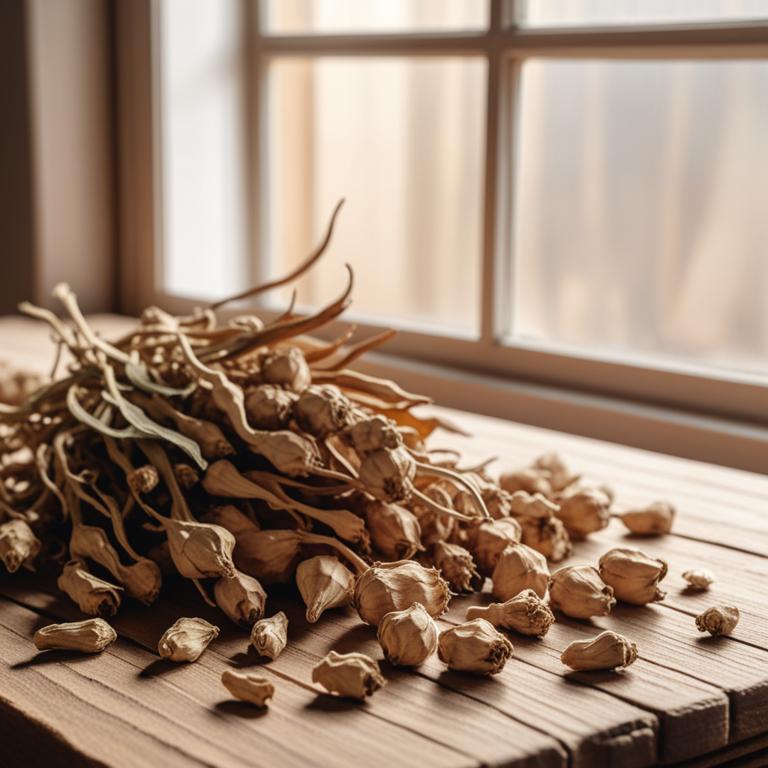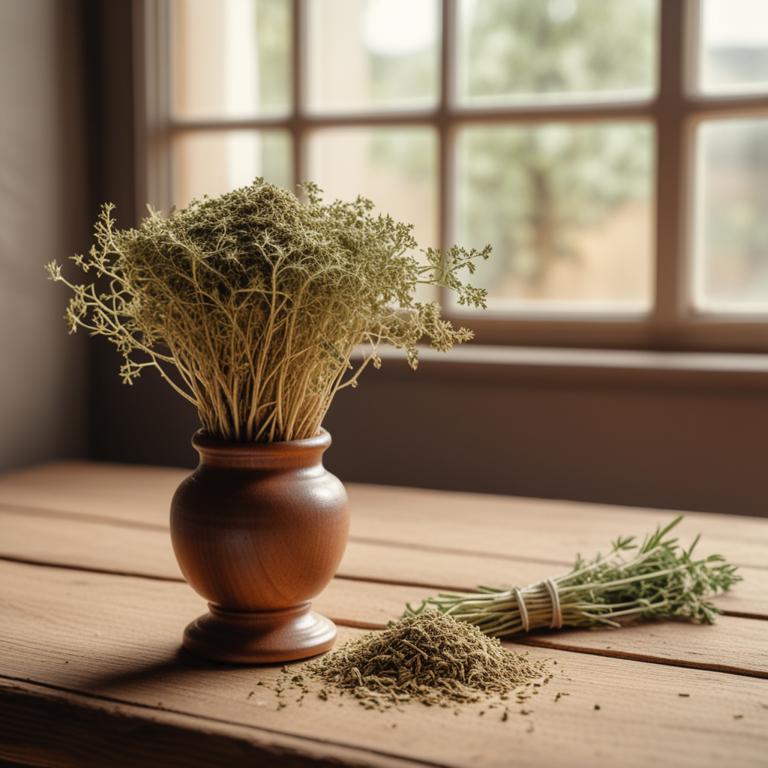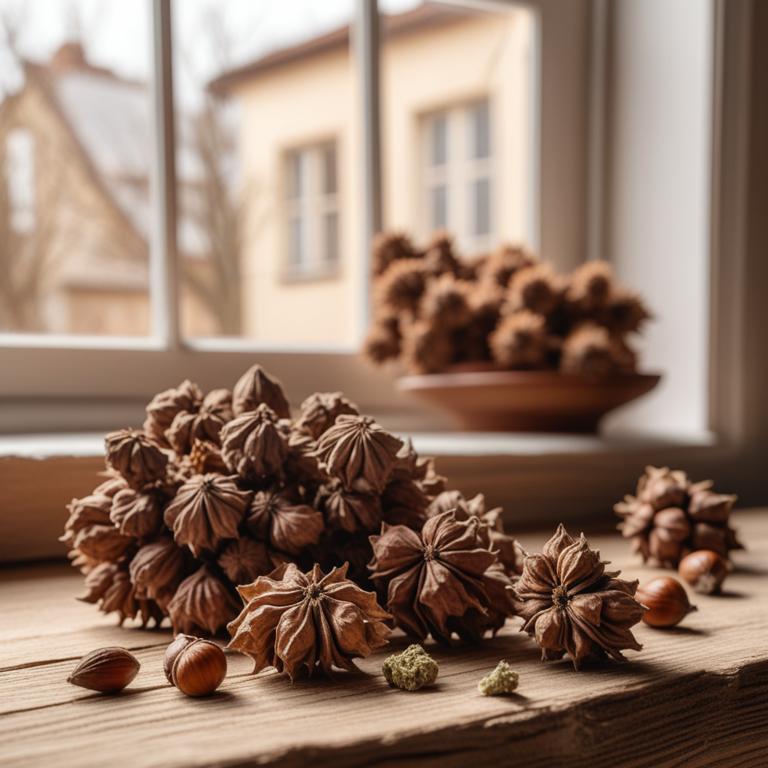Updated: Dec 1, 2024
Painful Swallowing: Causes, Medicinal Herbs, and Alternative Preparations for Comfort
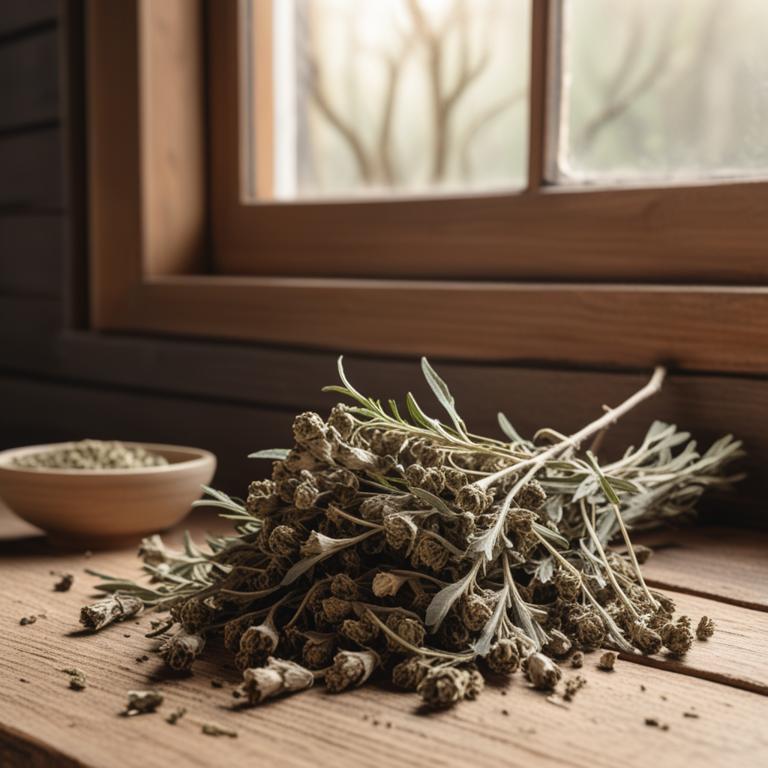
Painful swallowing, also known as dysphagia, can be a really uncomfortable and frustrating experience.
It's when eating and drinking become a chore, and you have to think twice before taking a sip or bite. This can affect your daily life, making mealtime a source of anxiety and stress. The causes of painful swallowing can vary, but often it's due to inflammation, acid reflux, or a sore throat. Herbal remedies can provide relief from painful swallowing. Herbs like slippery elm and marshmallow root have anti-inflammatory properties that can help soothe and calm the throat.
Licorice root, with its natural antibacterial properties, can aid in healing and reducing inflammation. These herbs can be consumed as teas, where you can steep the herbs in hot water to make a soothing drink. You can also use herbal preparations like lozenges or cough drops that contain these herbs. These can be sucked on to release the active ingredients directly onto the affected area. Some herbal remedies come in capsule or tincture form, which can be added to water or taken sublingually (under the tongue).
It's essential to consult with a healthcare professional before trying any new herbal remedies, especially if you have a pre-existing condition or are taking medications.
Table of Contents
- What are the reasons behind painful swallowing?
- What are the benefits of using herbs to alleviate painful swallowing?
- Which medicinal herbs are most effective for treating painful swallowing?
- What are the top herbal preparations used to treat painful swallowing?
- What herbs should you steer clear of if you experience painful swallowing?
- FAQ
What are the reasons behind painful swallowing?
The main causes of painful swallowing are related to issues with the esophagus, the tube that carries food from the throat to the stomach.
One common cause is gastroesophageal reflux, a condition where stomach acid flows back up into the esophagus, causing a burning sensation and discomfort. This can be due to a weak muscle at the end of the esophagus that fails to close properly, allowing acid to flow back up. Another cause is thyroid problems, specifically an enlarged thyroid gland that can put pressure on the esophagus, making swallowing painful.
In some cases, esophageal cancer can also cause painful swallowing due to the growth of abnormal cells in the esophagus that can block food from passing through. Esophagitis, which is inflammation of the esophagus, can also be a cause, often due to gastroesophageal reflux or other conditions that irritate the esophagus. GERD, a chronic form of gastroesophageal reflux, can cause long-term inflammation and damage to the esophagus, leading to painful swallowing.
Finally, esophageal stricture, a narrowing of the esophagus, can also cause painful swallowing due to the constriction of the esophagus, making it difficult for food to pass through.
What are the benefits of using herbs to alleviate painful swallowing?
Using herbs to help with painful swallowing can be very helpful.
One of the main benefits is that they can reduce inflammation and discomfort in the throat. These herbs have natural anti-inflammatory properties that can soothe the area and make it easier to swallow. They can also help to calm down the muscles in the throat, which can become tense and painful when you're having trouble swallowing.
Additionally, some herbs have antibacterial properties that can help to prevent infections that can make swallowing even more painful. By using these herbs, you may find that your pain and discomfort decrease, and you're able to eat and drink more easily. They can also help to reduce the risk of long-term damage to your throat, which is especially important if you're experiencing chronic pain or discomfort.
By incorporating herbs into your treatment plan, you may find that you're able to manage your symptoms more effectively and improve your quality of life.
Which medicinal herbs are most effective for treating painful swallowing?

Painful swallowing can be a real nuisance.
Herbs like Zingiber officinale, also known as ginger, can help ease the discomfort. Ginger has anti-inflammatory properties that reduce swelling and pain in the throat. It also helps relax the muscles, making it easier to swallow. Glycyrrhiza glabra, or licorice root, is another herb that can provide relief. Its anti-inflammatory properties and soothing effects on the mucous membranes help calm the throat and reduce pain. Another herb that can help is Curcuma longa, also known as turmeric.
It contains a compound called curcumin, which has potent anti-inflammatory and antioxidant properties. These properties help reduce swelling and pain in the throat, making it easier to swallow. Mentha x piperita, or peppermint, can also provide relief. Its cooling and soothing effects can help calm the throat and reduce pain. The menthol in peppermint can also help relax the muscles, making it easier to swallow. Finally, Achillea millefolium, or yarrow, has anti-inflammatory properties that can help reduce swelling and pain in the throat. Its soothing effects can also help calm the mucous membranes and reduce pain.
Drinking herbal teas made from these herbs can help ease painful swallowing.
What are the top herbal preparations used to treat painful swallowing?

Herbal preparations can be very helpful for painful swallowing.
A tincture, which is a liquid extract, can be applied directly to the affected area, reducing inflammation and discomfort. Decoction, a type of preparation made by boiling herbs in water, can be taken as a drink to ease pain and promote healing.
Infusion, another type of drink made by steeping herbs in hot water, can also help to soothe the throat and reduce pain. Salve, a topical ointment made from herbs, can be applied directly to the throat to reduce inflammation and promote healing. Lastly, tea made from herbs can be consumed to help ease pain and promote healing.
These preparations work well because they contain active compounds that have anti-inflammatory and soothing properties, which can help to reduce pain and discomfort associated with painful swallowing.
Additional Resources:
What herbs should you steer clear of if you experience painful swallowing?
If you're experiencing painful swallowing, it's best to be cautious with certain herbs that could potentially make things worse.
Echinacea purpurea, commonly used to boost the immune system, might cause stomach upset in some people, which could irritate your throat further. Thymus vulgaris, or thyme, is often used to calm digestive issues, but if you're already dealing with painful swallowing, it could be too harsh.
Valeriana officinalis, known for its sedative properties, might slow down your digestion, allowing stomach acid to flow back up into your esophagus and exacerbate the discomfort. Silybum marianum, or milk thistle, is typically used to support liver health, but its strong properties could irritate your digestive tract and worsen swallowing pain.
Rauvolfia serpentina, often used to lower blood pressure, might cause stomach cramps and nausea, making your painful swallowing even more uncomfortable.
FAQ
Are there any specific herbs that can prevent painful swallowing?
Ginger has anti-inflammatory properties that may help soothe an irritated throat and ease painful swallowing.
Some people find relief from symptoms of sore throats by drinking ginger tea or taking ginger supplements.
Other herbs, like slippery elm, can also provide a protective barrier for the mucous membranes in the throat, helping to reduce discomfort.
Is it safe to use herbal remedies for painful swallowing during pregnancy?
During pregnancy, it's best to be cautious when using herbal remedies for painful swallowing.
Some herbs may interact with medications or have unknown effects on the baby. If you're considering trying herbal remedies, make sure to talk to your pharmacist about the potential risks and benefits.
They can help you understand what's safe and what's not.
Are there any herbs that can reduce the frequency of painful swallowing?
Ginger has anti-inflammatory properties that may help reduce painful swallowing.
Licorice root has been used to soothe irritated tissues in the throat. Some people find that slippery elm helps protect the mucous membranes and reduce discomfort.
These herbs are often consumed as teas or added to food to provide relief.
Related Articles
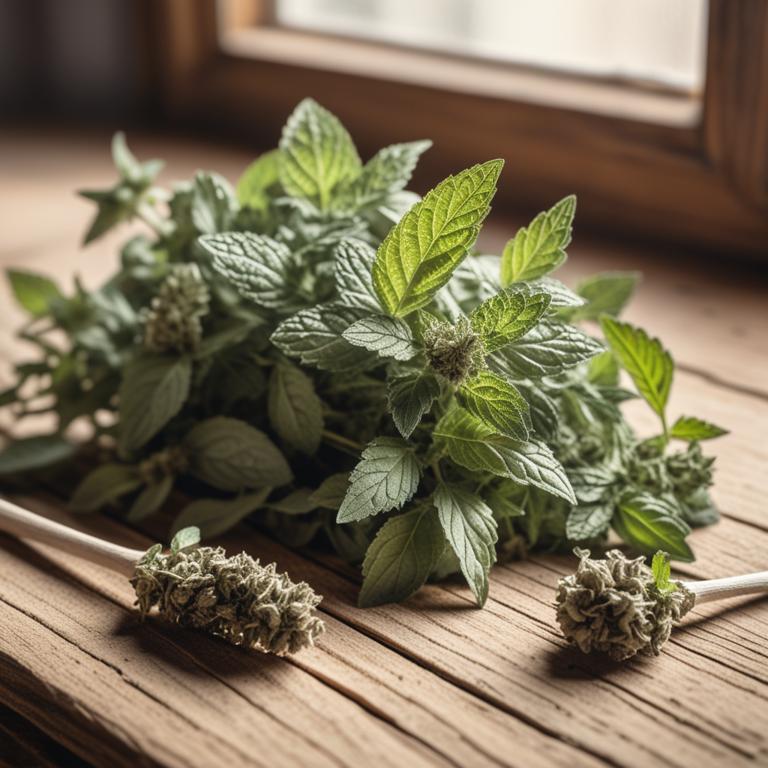
Throat Pain: Causes, Treatments, and Medicinal Herbal Preparations
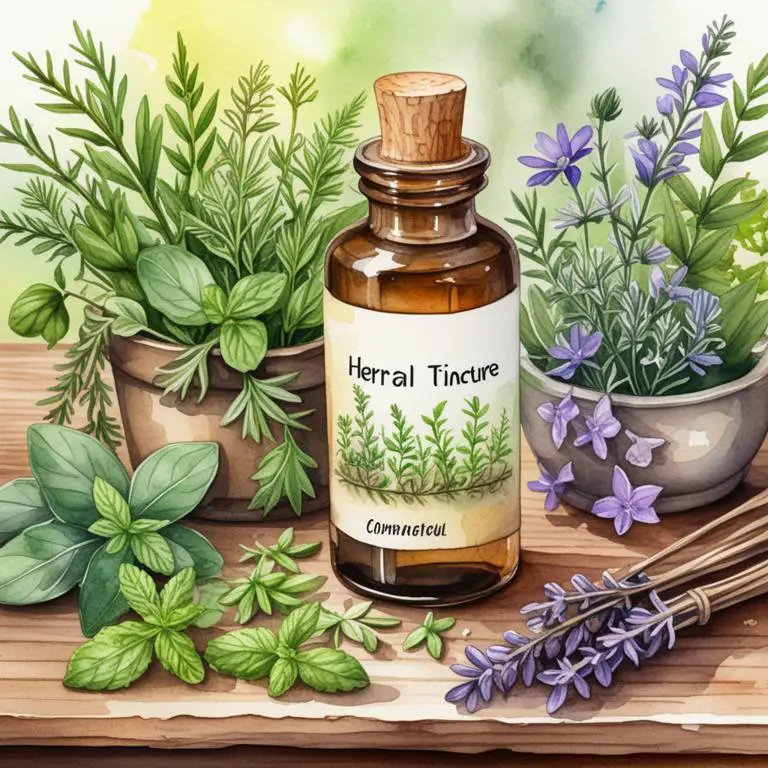
Unlocking the Secrets of Difficulty Eating: Medicinal Herbs and Herbal Preparations for a Balanced Diet
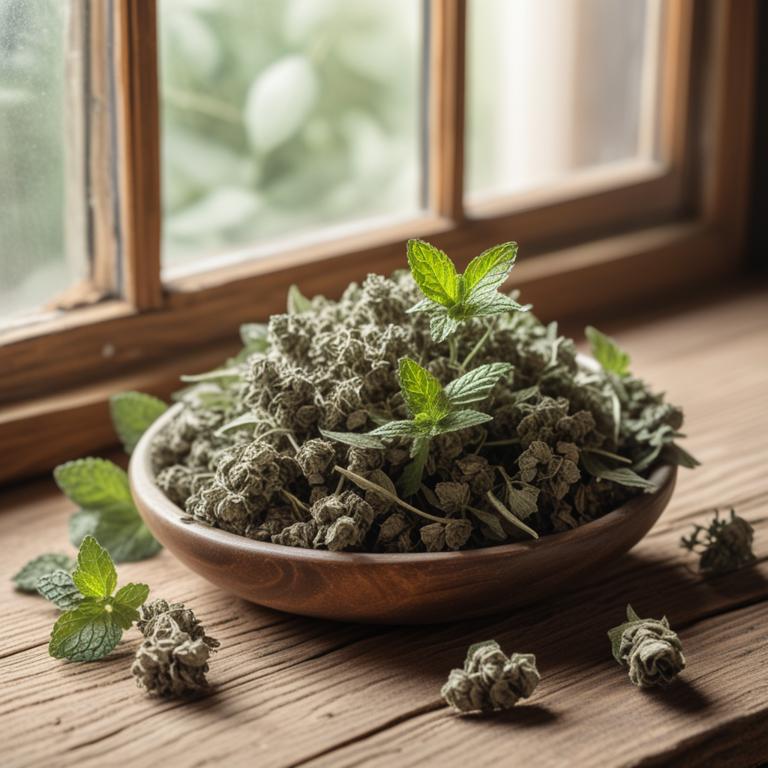
Heartburn and Digestive Health: Medicinal Herbs and Preparations
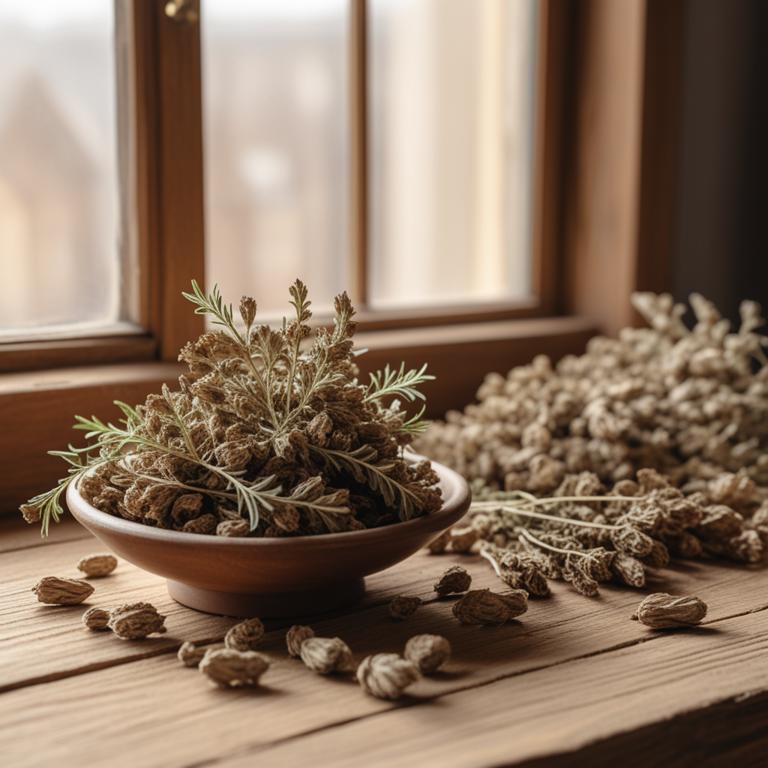
Diverticulitis Causes, Herbal Remedies, and Alternative Approaches to Healing

Hemorrhoids Causes, Symptoms, and Natural Herbal Preparations




